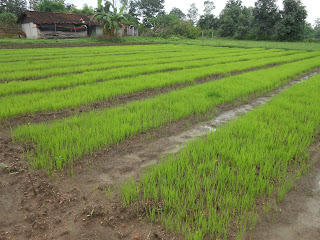Dear all,
Department of Land Resources, Ministry of Rural Development, Government of India has released draft National Land reform policy for comment and feedback. Just go through the document at http://dolr.nic.in/dolr/NationalLandReformsPolicy_Notice.asp and share your feedback. We all are working mainly with the farming community, it would be good if as a joint initiative from Sanjha Samvad we could give comment on the draft policy.
Share your comment at sanjhasamvad@gmail.com , we will consolidate it and send it to the concerned department.
Last date of sending comment on policy is 31st Aug 2013
In brief context in the draft policy is:
India, being a predominantly agricultural society, has a strong linkage between land and social status of an individual. The fact that close to 70 % of the population is dependent on land, either as farmers or farm laborers, means that it is imperative to address the issue of land in such manner that it provides livelihood, dignity and food security to millions of Indians. India has the largest number of rural poor as well as landless households in the world. Landlessness is a strong indicator of rural poverty in the country. Land is the most valuable, imperishable possession from which people derive their economic independence, social status and a modest and permanent means of livelihood. But in addition to that, land also assures them of identity and dignity and creates condition and opportunities for realizing social equality. Assured possession and equitable distribution of land is a lasting source for peace and prosperity and will pave way for economic and social justice in India. Land reform was a major policy initiative in the country in the 1950s and early 1960s. However, after abolition of Zamindari and Proprietary Rights, other measures like ceiling on land holdings, while became a part of the legal framework, did not get implemented in the true spirit except in some states like West Bengal, Kerala and Jammu & Kashmir. In other parts of the country, the petty attempts of declaring surplus land for distribution to the poor was caught up in the web of infinite litigation. In order to shift the policy from providing benefit to recognizing the right of the sovereign people over land, radically different and comprehensive approach will be required. The way land use has shaped up in recent years raises several issues and land reform has become much more relevant today than ever before. The increasing demand of land acquisition for housing, industrialization and several other purposes; diversion of agricultural land for non-agricultural purposes; the stagnating agricultural yields and the empirical evidence on the utility of small farms, all point towards the revisiting the issue seriously. More importantly, inequitable distribution of benefits from the new land use, insufficient quantity of compensation, and rehabilitation not being implemented properly is leading to enormous dissatisfaction among the affected people. This ultimately is leading to social unrest and violence in some parts of the country. To address these, it is imperative that grievances of those affected are met adequately thorough a revisit to a comprehensive land reform agenda. Increasing participation of women in agricultural labour and other farm activities also calls for a policy strategy that addresses the issue of access and land holding rights to women.
In short, to address a number of critical issues related to land in the current juncture, the need for a National Land Policy today is more urgent than ever before. Such a policy would be based upon Tehsil, District, Region and State level master plans. This will clearly delineate areas unfit for agricultural use and therefore reserved for industrial and other non-agricultural purposes, obviating and minimizing the need for acquisition of land that gives rise to displacement, landlessness and unrest. This policy outlines a very clear strategy of creating a large pool of land so that every family’s right to land is fully honoured. The policy proceeds to suggest a just and equitable method of allotting land on a priority basis to the marginalized, especially marginalized women. Policy provisions are also made in Draft for Discussion Purposes and Comments such a way that common property resources supplement the needs of the poor and deprived.
Regards
Vinod Pandey














